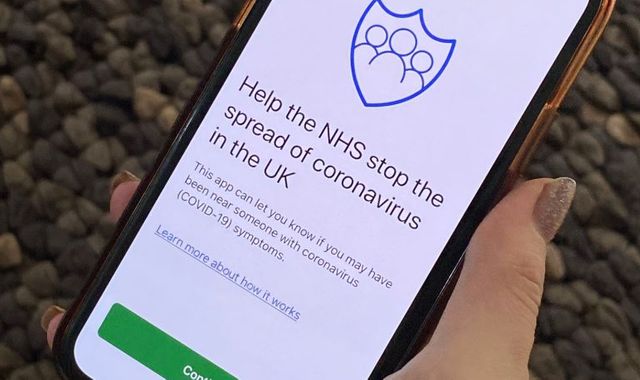Coronavirus: Send virus alerts within 24 hours or risk second wave, scientist warns
Written by News on 08/05/2020
People at risk of COVID-19 infection need to be alerted within 24 hours or contact tracing will be useless, a scientist advising the government has warned.


Professor Christophe Fraser, a University of Oxford epidemiologist who is advising the NHS on its contact-tracing app, said the fact that coronavirus spread before people experienced symptoms made speed essential in tracing contacts.
He told Sky News: “A 72-hour delay really means that you’re having very little impact on the epidemic. A 48-hour delay is pretty bad.
“You really need to be getting the information across in 24 hours.”
Asked how to achieve the necessary speed, which refers to time after the onset of symptoms, Prof Fraser said that it could either be done by “incredibly quick testing” or by asking people to report their own symptoms.
Sky News understands that results from tests going to the Milton Keynes Lighthouse Laboratory are currently returned in 24 to 36 hours.
The NHS contact-tracing app, which is currently being trialled on the Isle of Wight, operates on a self-reporting model, asking users who believe they have coronavirus to complete a short quiz about their symptoms.
If they appear to have COVID-19, the app will suggest that anyone who has been in close contact with them practises strict social distancing while the person who has been infected gets a test.
Senior Whitehall officials have argued that in order to allow people to self-declare, the NHS app needs to use a centralised model, or it will be impossible to secure effectively.
Prof Fraser said this was “right” – adding that the debate around privacy had become “very binary”.
He said: “I support privacy, but we’re trying to do something complicated, which is to get the best possible privacy, but also maximise the chance of not having a second wave of the epidemic.
If warnings were sent out in less than 24 hours, Prof Fraser said, then his team’s models showed that it could “make the difference between an epidemic starting to resurge towards the second wave or not” – although the exact impact depended on what other measures were in place.
It could also help lift the national lockdown, he added, by putting in its place a “smart lockdown” that only targeted at-risk individuals.
Asked if he believed it was possible to make testing quick enough to use that for contact tracing, Prof Fraser said: “That’s not for me to believe or not. It’s just to understand that if you make this choice, then it has this implication – that’s for others to answer that question.”
Other public health experts, however, disagreed with the assumptions made about testing and contact tracing.
“They’re departing from standard procedure for an epidemic, which is that you tackle a local outbreak locally,” said Allyson Pollock, Director of the Institute of Health and Society at Newcastle University.
“I’m really puzzled by the approach.”
Google and Apple are building a contact-tracing system using a decentralised model, which Professor Fraser said could have benefits if it encouraged more people to download the app.
“There are advantages to the Google/Apple system,” he said. “They operate the operating system and it’s important to get the highest possible uptake.
“It’s important that people feel confident and feel that the privacy concerns are being taken seriously and that the system collects as little information as it needs to function.”
Asked whether alerts from a system that was based on self-reporting would be taken less seriously or enable fraudulent claims, Prof Fraser said his team was considering that with behavioural scientists.
An important factor in encouraging compliance, he said, would be the accuracy of the app’s risk scoring algorithm, which decides whether people are at risk using a variety of measures taken from the phone’s Bluetooth signal.
These include assessing how “meaningful” a meeting was, based on the length and frequency of contacts – something Prof Fraser said it would be easier to determine with the data from a centralised app.
However, he acknowledged it would be possible for users of a decentralised app to donate data to improve the system.
Advocates of decentralisation argue this would be a good way to preserve privacy and help contact tracing become more accurate.
:: Listen to the Daily podcast on Apple Podcasts, Google Podcasts, Spotify, Spreaker
Michael Veale, a lecturer at University College London who is working on a decentralised contact tracing system called DP3T, said: “It’s good to hear the epidemiologists recognise that decentralised systems also provide the data needed to improve the risk scoring.
“Data donation as we have designed it doesn’t even risk privacy of the users, we just feel that contact-tracing apps should just do what they say on the tin, and ask for consent before doing more.”
The Oxford Big Data Institute has been advising a number of countries across the world on contact tracing apps, including Norway, Singapore, Switzerland, Germany, Australia and New Zealand.
The group models the impact of various interventions on a million “person” virtual city designed to reflect the conditions of life in the UK.
(c) Sky News 2020: Coronavirus: Send virus alerts within 24 hours or risk second wave, scientist warns







